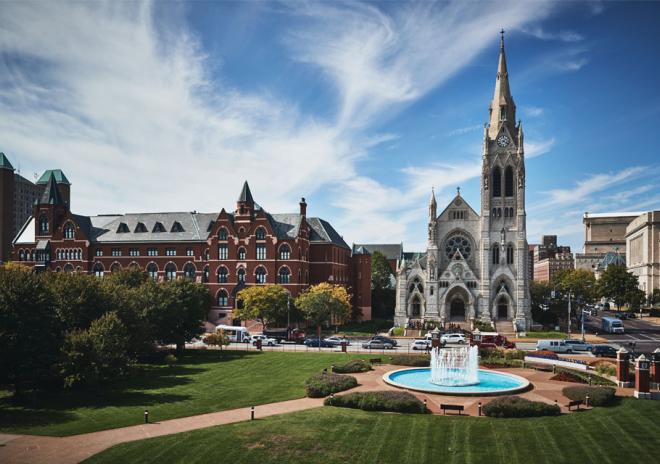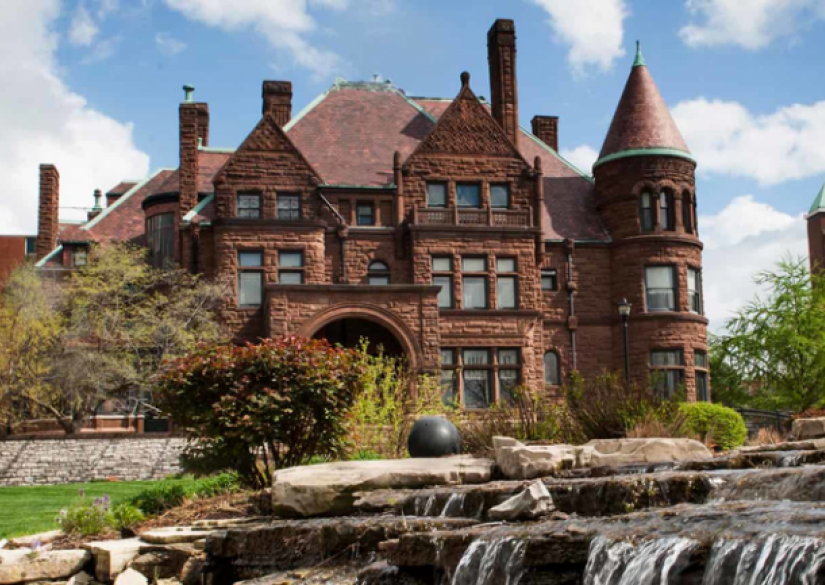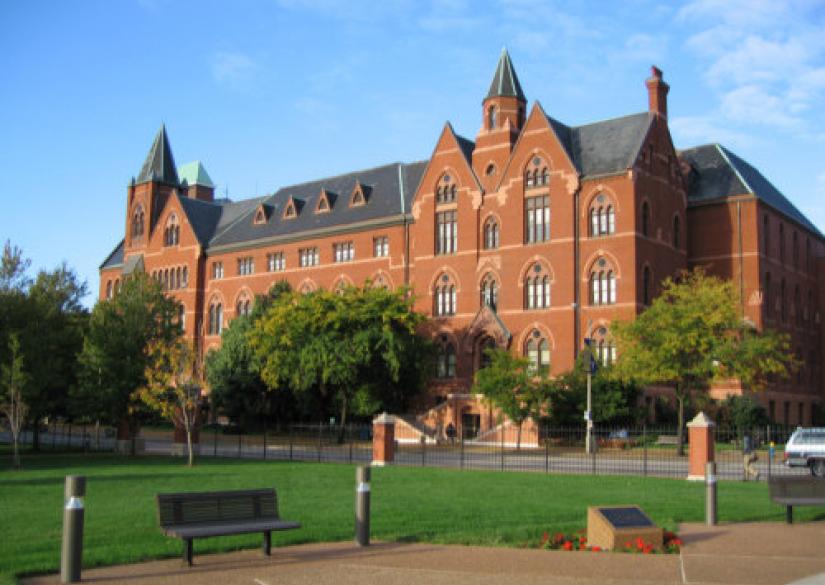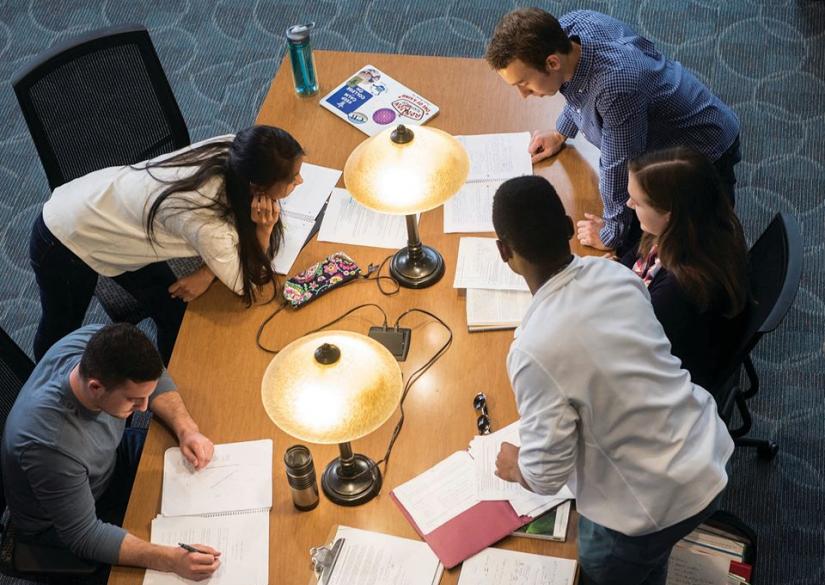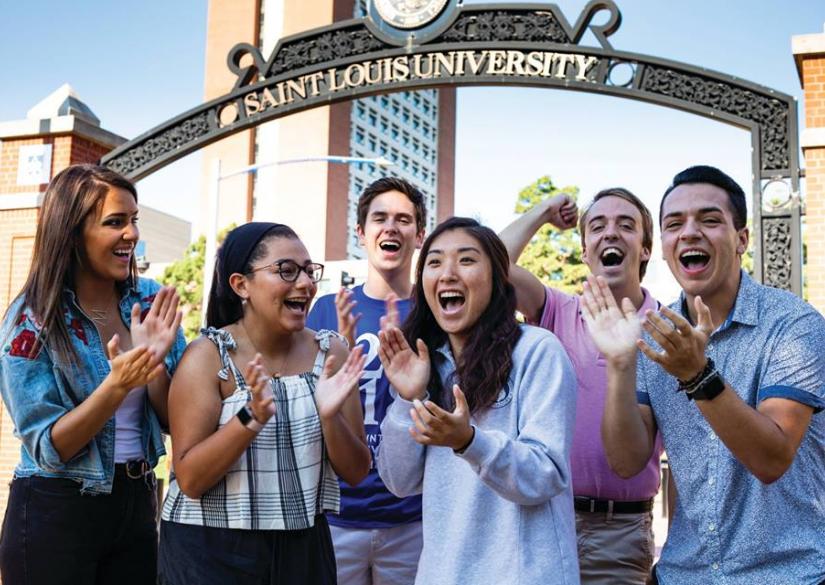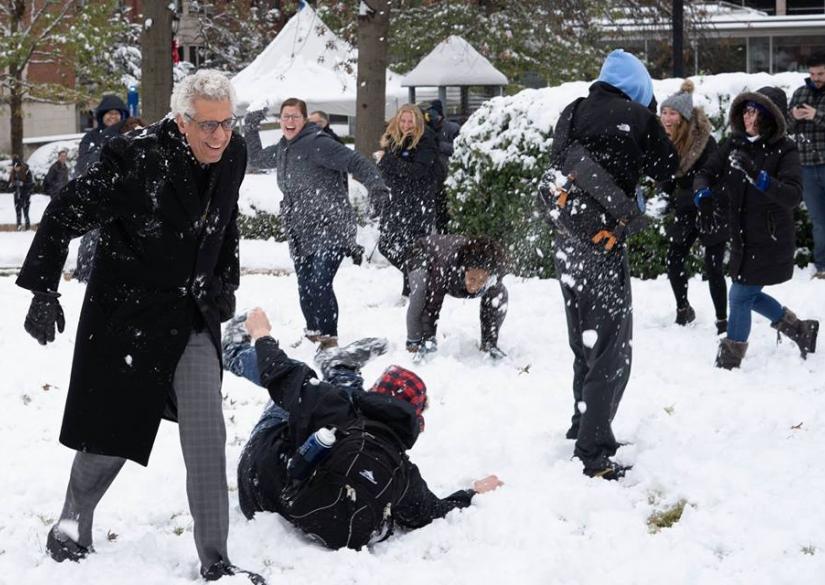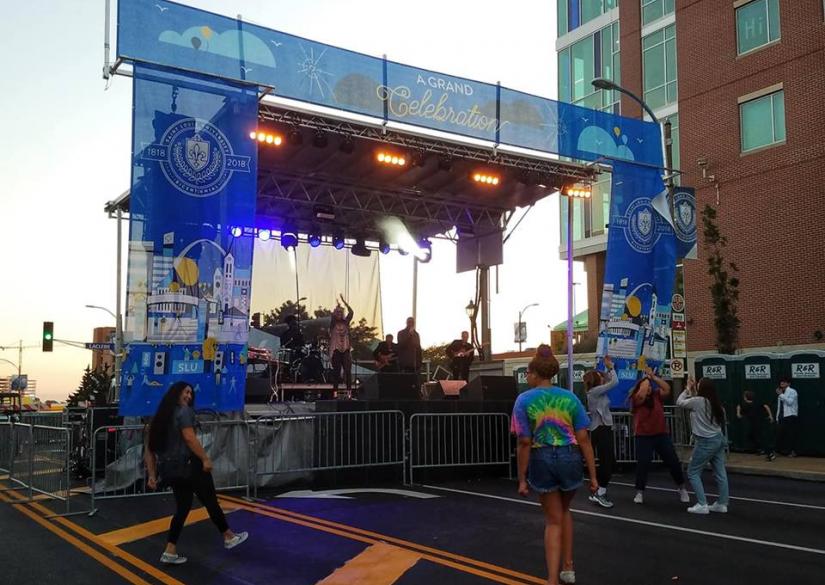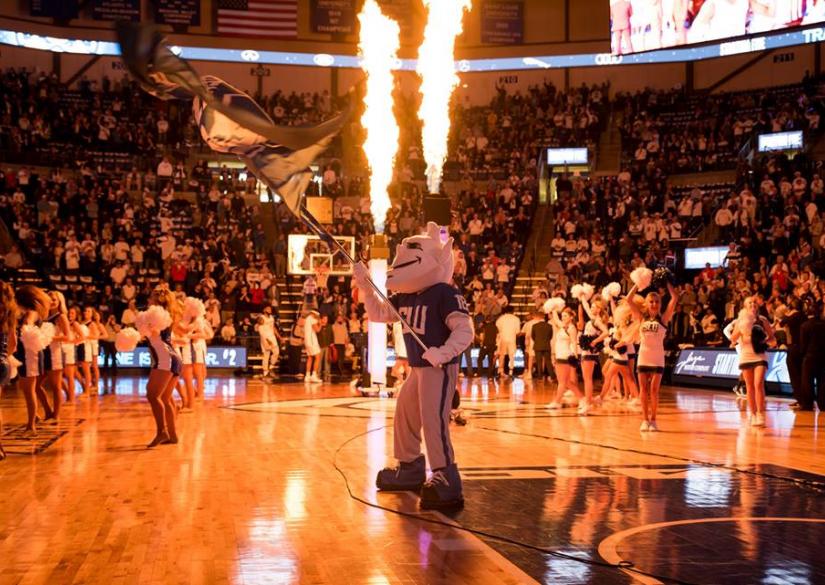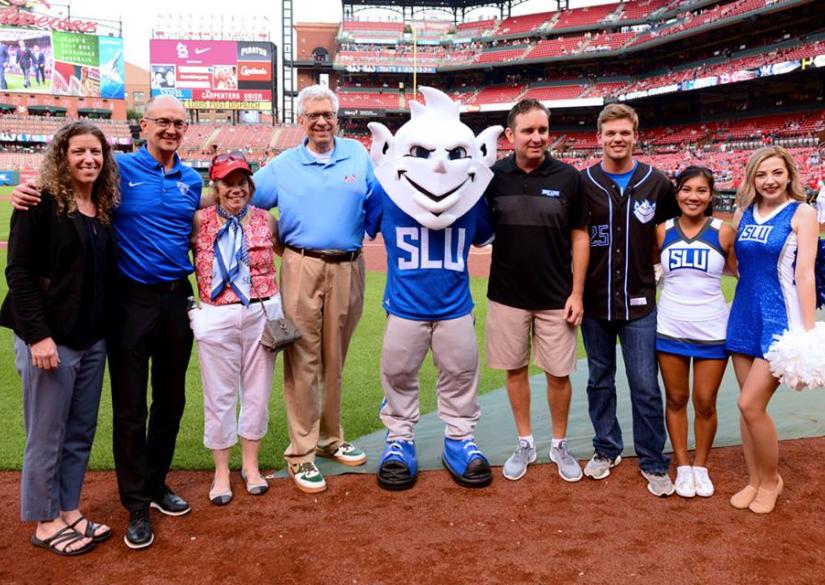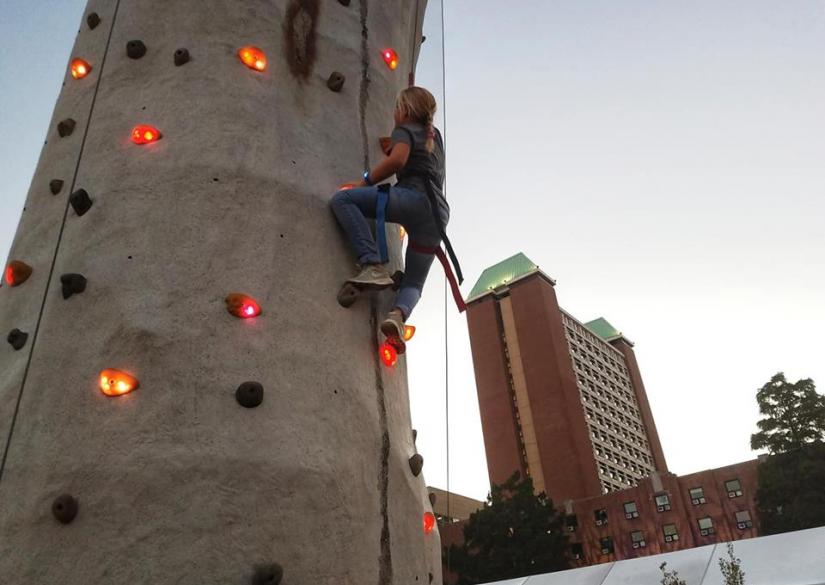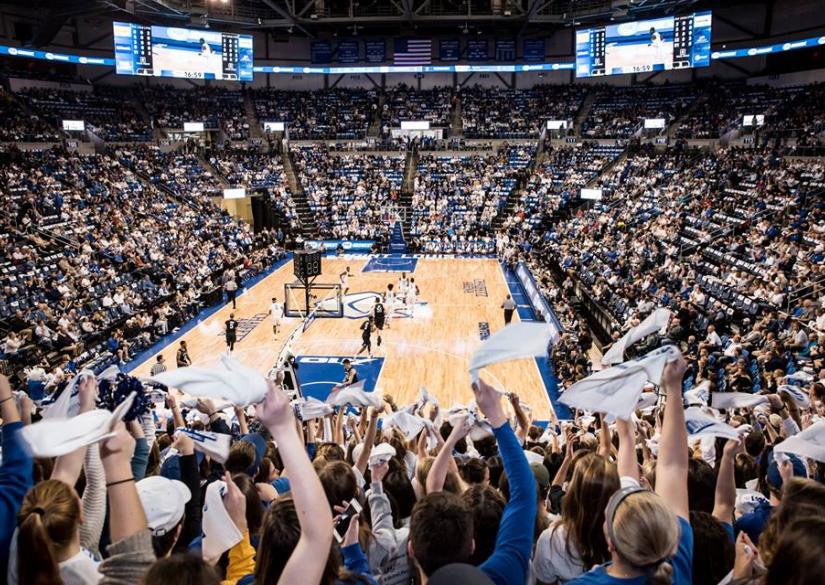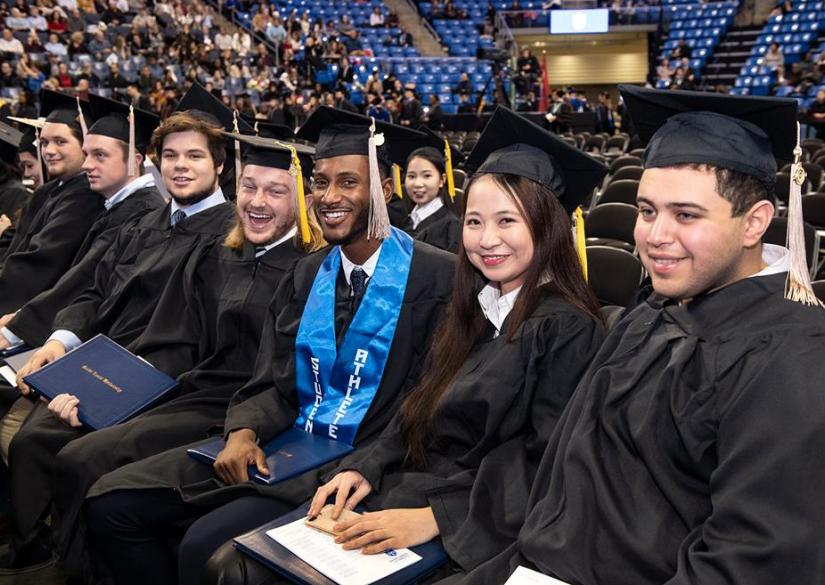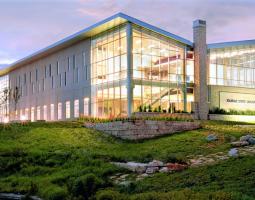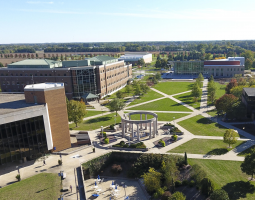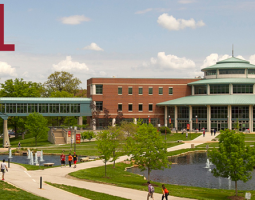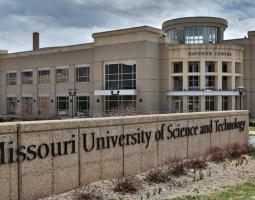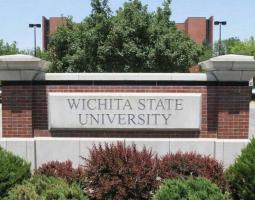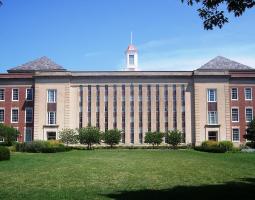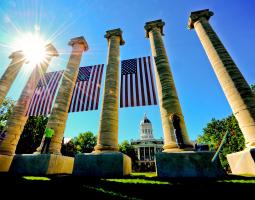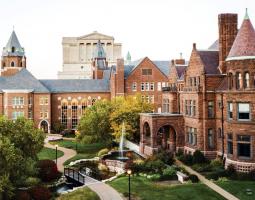Saint Louis University
In the process of preparing the material, we referenced the following sources: Wikipedia, US News, Forbes, THE, ADScientificindex, CollegeFactual
Programs and prices, tuition fees in Saint Louis University
Bachelor degree
- Age of students — from 18 years old,
- The studying period is three to four years.
Bachelor's degree programs are the first stage of higher education, providing students with basic theoretical knowledge and practical skills in their chosen field. SLU offers more than 100 bachelor's degree specializations, some of them:
- Accounting,
- Aeronautics,
- American studies,
- Art History,
- Anthropology,
- Biochemistry,
- Bioethics, medical research,
- Biology,
- Business Technology Management,
- Catholic Studies,
- Chemistry,
- Civil engineering,
- Communications,
- Computer Engineering,
- Criminology, criminal justice.
The studying will take 3-4 academic years, and will include attending substantive lectures and seminars, working in specialized laboratories, self-study, and group project activities.
Master Degree
- Age of students — from 21 years old,
- The studying period is one to two years.
Master's degree programs will provide students with deeper knowledge of the scientific field being studied, a large number of practical hours in laboratories, and the opportunity to gain professional skills through internships. There are several dozen directions available at the university for obtaining a Master of Science degree, including:
- Accounting,
- Analytics,
- Anesthesiology,
- Anatomy,
- Sports training,
- Artificial intelligence,
- Applied Financial Economics,
- Applied behavioral analysis,
- Aviation,
- Bioinformatics, computational biology,
- Biostatistics,
- Chemical Biology,
- Computer Science,
- Cybersecurity,
- Engineering.
After completing their studies at the master's level, students can find a job in their specialty or continue their academic career in doctoral studies.
Academic English
- Age of students: 16+
- Duration of studying: 10 or 16 weeks.
The preparatory course is aimed at supporting international students who are not yet ready for entering higher education programs. For 16 weeks in the spring, fall semester, or for 10 weeks in the summer semester, students will attend face-to-face classes in small groups. The lessons are taught by qualified native English teachers who will provide students with comprehensive assistance in improving their reading, writing, speaking and listening skills, help them replenish their academic vocabulary and adapt faster to a new learning environment.
Upon completing the course, students achieve excellent results, thanks to which they will be able to move on to study at the university.
International year one
- Age of students — from 18 years old,
- The period of study is one or two semesters.
The International Year One preparatory course offers academic support to foreign students: language and subject classes in a pre-selected specialty. During one or two semesters, students will adapt to the new learning environment, gradually mastering the features of the bachelor's degree program that awaits them at the end of the course.
It is possible to prepare for admission in the following directions:
- Aeronautics,
- Aerospace engineering,
- Art,
- Business,
- Computer science,
- Engineering,
- Mathematics, statistics,
- The science,
- Public health.
Upon graduation, students will have a fairly high level of English language proficiency and basic knowledge that will help them continue their undergraduate education.
Doctoral Programs
- Age of students – from 23 years old,
- The duration of studying is from three years.
Doctoral studies consist of three years of conducting individual research on a chosen subject topic and writing a dissertation. Under the guidance of researchers and specialized teachers, students collect data, conduct analysis, engage in laboratory projects and create personal work that will be presented to the qualification commission at the end of their studies.
Some directions available for doctoral research are:
- Anatomy
- Aviation
- Accounting
- Biochemistry, Molecular Biology,
- American studies,
- Biology
- Business Studies,
- Clinical Psychology,
- Biomedical Engineering,
- Computer Science,
- Educational policy, equality,
- Leadership in Education,
- Experimental Psychology,
- Healthcare Management,
- International business, marketing.
Graduate Pathway, Graduate Preparation
- Age of students – from 20 years old,
- Duration of study – one or two semesters/
Graduate Pathway courses are designed to support international students who would like to improve their English language proficiency, as well as deepen their specialized knowledge prior to direct entry to graduate programs. In one or two semesters, teachers and researchers will help students master subject credits, develop reading, writing, speaking and listening skills so that the student can move on to full-fledged education in the chosen master's program.
Some of the directions available for studying are:
- Aerospace, Mechanical Engineering,
- Applied Financial Economics,
- Analytics
- Bioinformatics, Computational Biology,
- Business Administration,
- Chemistry
- Civil engineering
- Computer Science,
- Biomedical Engineering,
- Information systems,
- Nutrition, dietetics,
- Mathematics
- Electrical Engineering, Computer Engineering,
- Philosophy, theology,
- Public health.
Description of Saint Louis University
- Location: St. Louis, USA,
- Year of foundation: 1818,
- Number of students: about 13,500,
- Language of instruction: English,
- Type of studying: mixed.
Saint Louis University (SLU) is the oldest Jesuit university in the United States, with a long history, traditions and an impressive number of awards. The educational institution offers bachelor's, master's, and doctoral programs, as well as preparatory courses for international students.
Founded in 1818, the university has already celebrated its 205th anniversary. Throughout its existence, SLU has gone through many changes to provide students with some of the best conditions for obtaining higher education degrees. Its distinctive features are commitment to faith, an individual academic approach to each pupil, and a comprehensive education of students with an emphasis on their personal strengths. The efforts made by the administrative staff and the teaching staff are assessed annually by international and national agencies. According to the results of many ratings, SLU is one of the leading universities in the country.
By entering Saint Louis University, students receive not only modern career training, but also the opportunity to improve the quality of life of the local, international community. The University actively conducts research activities and participates in joint projects with various scientific communities in order to preserve, improve, transform what is already known and discover new ones. Highly qualified scientists with many awards and their own achievements participate in scientific work, students of all programs — research is an important aspect of curricula. The student community is represented by more than 13,500 students, about 21% of them are from all 50 states and 90 countries. Each pupil is given personal attention in both academic and personal matters, comprehensive support and effective development are provided to achieve their goals.

What additional activities and clubs are there for students?
Almost anything! Social, sports clubs and events, excellent studying conditions, hundreds of equally passionate peers who are ready to share your interests and hobbies. Universities on their online portals always post comprehensive information about such communities, at the beginning of the academic year they organize introductory events: come and get to know each group and club personally!
Educational process
Academic support provided to all students who need it contributes to the achievement of their goals, understanding of career opportunities. Qualified teachers, researchers, consultants provide a wide range of assistance, including:
- Tutoring in the form of individual classes or trainings in small groups,
- Supplemental Instruction (SI) – provides group lessons for a deeper study of common subject topics in large groups. Seminars are held in disciplines such as anatomy, biology, chemistry and physics,
- University Writing Services (UWS) is an elective that helps students become more confident writers. Through a variety of consultation options, UWS provides feedback at any stage of the writing process, abstracts and dissertations, personal statements, speeches and oral presentations,
- Coaching is support during the transition to the next educational stage. From the first semester through the final year, difficulties can arise at any time, and coaching can help students create a plan to move toward their goals in and out of the classroom.
Faculties and colleges
SLU includes more than 10 specialized faculties:
- Art, science,
- Business
- Education
- Stomatology
- Jurisprudence
- Pharmacy
- Health Sciences,
- Nursing,
- Philosophy
- Social Justice, Healthcare,
- Social work,
- Science, technology,
- Professional education.
Scientific achievements
The educational institution has the status of "R2: Doctoral Universities – High Research Activity". SLU's R&D center focuses on projects in many important areas and strives to improve the quality of life not only for the local community, but also for the international community. In recent years, the attention of researchers, students and graduate students has been focused on such areas as geospatial science and technology, vaccine development, and the humanities.
Accommodation, meals, prices
SLU has nine residences and three residential complexes to accommodate students, some teachers and staff:
- DeMattias Hall,
- Fusz Hall,
- Grand Forest Apartments,
- Grand Hall,
- Griesedieck Complex,
- Ignacio Hall (PhD students)
- Marchetti Towers,
- Marguerite Hall,
- Reinert Hall,
- Robert May Hall (PhD students),
- Spring Hall,
- Village Apartments.
All first-year students are required to live on campus in their first year.
Students can choose the type of room that suits them best: single, double, triple or quadruple. Bathrooms are mostly shared - they are shared by residents of one room block or the entire floor. Some residences are equipped with public kitchens with the necessary appliances for cooking, storing food, living rooms, halls for student events and self-study, laundries. Dining halls, located in part of the residential complexes, offer students a varied menu with snacks, full meals, drinks.
When living in the residential buildings of the university, students choose one of six meal plans, each of which consists of a certain number of meals, additional bonuses for the purchase of snacks, drinks in the SLU cafeterias. Meal plans offer flexibility, adaptation to dietary and religious characteristics.
Activities Saint Louis University
A wide variety of extracurricular development opportunities for students include sports teams, creative and musical groups, participation in volunteer and research projects, themed clubs, and more.
Thanks to SLU's modern sports infrastructure, which includes indoor and outdoor playgrounds, specialized halls and facilities, students can try new areas of physical activity and improve their existing skills in their favorite sports. National teams compete with students from other universities in NCAA Division I, which will allow them to achieve individual goals, earn awards and show their abilities to professionals. Some of the sports offered at SLU are the following:
- Badminton,
- Baseball,
- Equestrian sports,
- Cycling,
- Golf,
- Hockey,
- Karate,
- Lacrosse,
- Rugby,
- Football,
- Table tennis,
- Taekwondo,
- Volleyball,
- Frisbee,
- Water polo.
A large fitness room is available for students to maintain a healthy lifestyle. Under the guidance of experienced coaches, students can practice swimming, cardio and strength training, dancing, yoga and many other activities.
Themed clubs are an important part of student life. Communities reflect the diverse interests of students, bring together like-minded people and allow them to develop talents in a supportive atmosphere. Club meetings are held weekly, and larger events are held several times a semester. Some of the directions are:
- Women's business,
- Anthropology,
- Promoting the development of art,
- Chinese language, culture,
- Journeys,
- Criminology, criminal justice,
- Economy,
- Robotics,
- Indian Students Association,
- Books, poetry,
- Dances,
- Psychology,
- Fencing,
- Anime,
- Radio, university media.
Creative and musical groups perform at most campus events, travel outside the academic territory to participate in external concerts, exhibitions, and productions. Art in SLU is represented in several directions: visual, theatrical, performing, musical. Professional teachers conduct both group and individual classes in order to fully unleash the talent of each team member and help him develop his abilities for further career building.
Various events are regularly held on SLU campuses: from music concerts, theater productions to charity events, sports competitions, and theme days. Participating in events not only allows students to meet new people and show their talents, but also to help the local community expand their career opportunities.
Advantages
- No.46 among the best universities in the country — US News & World Report,
- It is one of the TOP 25 leading universities providing the best conditions for international students — Institute of International Education,
- No.6 in the ranking of Catholic institutions in the Wall Street Journal/Times Higher Education national list,
- No. 39 in the list of the most reliable universities in the USA — Morning Consult,
- More than 90% of students receive financial support,
- More than 200 years of successful academic work for local, international students,
- Multinational student community with representatives from more than 90 countries of the world,
- About 2,000 highly qualified teachers who provide an individual approach to each student,
- Two studying territories, one of which is located in Madrid, Spain,
- Extensive extracurricular development opportunities, including professional-level athletic sections and the opportunity to compete in NCAA I,
- Cooperation with local and international organizations based on research, academic activities, and exchange programs,
- The ratio of students to teachers is 9:1.
Facilities and equipment at Saint Louis University
SLU has two campuses: the main one is in Fort Collins, Missouri, and the affiliated one is in Madrid, Spain. The main SLU area is located in the central part of the city, within walking distance of the Performing arts center, the Cortex innovation district, and business centers.
SLU occupies more than 270 acres of open spaces, which include 12 residential buildings, administrative and academic buildings, playgrounds for sports and events, and recreational areas. The distinctive features of the campus can be considered:
- The amphitheater on the Lipic Clock Tower Square, where students gather on warm days,
- 120,000 square feet of sports infrastructure at the Simon Center,
- More than 20 catering outlets, including Starbucks, Qdoba Mexican Grill,
- Three major museums: the Museum of Art, the Historical House and the Cupples Galleries, and the Museum of Contemporary Religious Art,
- St. Francis Xavier College Church, recognized as one of the most beautiful in the country.
The academic process takes place in lecture halls, specialized subject laboratories and computer classrooms, conference rooms and rooms for teamwork on projects. The equipment of the studying halls meets modern requirements and includes PCs with the necessary software, printing equipment, interactive whiteboards and projectors, audio and video equipment. Specialized facilities have been created for conducting research and project work, in which you can find the necessary sets of consumables and additional methodological resources.
Admission dates and extra charges
The academic calendar covers the entire year, including four semesters, two of which are in session:
- Autumn: August-December,
- Winter session: December-January,
- Spring: January-May,
- Summer session, short-term courses: May-August.
Classes are held on weekdays, and rest is provided on weekends, national and international holidays, and during vacations. Extracurricular activities are organized at the end of academic classes and on some weekends.
An approximate list of additional expenses includes:
- Entrance fees, deposits,
- Accommodation, meals and other housing expenses,
- Technology usage fees,
- Some extracurricular activities, contributions to student associations,
- Individual academic and other support not included in the curriculum,
- Compulsory insurance,
- External exams,
- Personal expenses.
Enrolment process
The admission process consists of several stages, most of which are available online. Future first-year students will have to:
- Fill out the registration form, provide the required documents,
- Pay the application fee,
- Pass an interview, possible entrance exams,
- Receive an official invitation to enroll,
- Make deposits to book a place on the course, in the residence,
- Arrive on campus to attend orientation events, check into the residence, start classes.
Admissions officers provide comprehensive support, including in the process of obtaining a visa, medical and other documents for a long-term stay in the United States.
Perspectives
To date, SLU graduates have more than 137,000 professionals in various fields, who have built careers in 50 US states and more than 154 countries. Many former students of the university are known for their achievements in philosophy, sports, politics, and medicine.
Entry requirements, how to apply, what is required to enrol
Before entering higher education programs, foreign applicants who have not yet studied in English are recommended to take a preparatory course. To enroll in them, as well as in subsequent bachelor's degree programs, candidates must provide:
- A package of personal documents, including a passport, medical insurance, visa or residence permit,
- Certificate of completion of secondary education with assessment tables, certificate of preparatory course,
- Language test results: IELTS (from 6.0-6.5), TOEFL (from 80), PTE Academic (from 54) or university-recognized equivalent,
- Letters of recommendation, individual achievements.
To enroll in master's/doctoral programs, prospective students should provide the same documents, with the exception of academic ones — admission is based on a bachelor's/master's degree in the relevant specialty.
Scholarships Saint Louis University
Several types of financial support are available to SLU students: scholarships, grants, loans, and the Work-Study program.
Foreign students have access to scholarships awarded upon admission based on previous academic achievements and extended if they maintain high academic performance. Loans that cover most of the cost of education and housing are issued by external organizations and will require repayment, unlike scholarships. The "Work-Study" program involves a temporary part-time job on campus, due to which the student's expenses will be reduced.
Literature and references
Institution on the map
Residence permits, citizenship and other services
- Guardianship services during the studies
- Student supervision
Review about Saint Louis University
Recommendations on when to apply
| Language courses, schools and children's language camps | Primary and secondary education - private schools | Preparation programmes for entering universities - higher education | Higher education (after completing accredited programs A-level, IB, High School) - Bachelor, Master, MBA |
| - we recommend to apply 6-9 months before the start of the course (some camps and schools offer discounts for early booking or for lengthy study programs) - there are some very popular and high demand children's camps, where the applications need to be submitted 1 year in advance (in particular Switzerland , Great Britain , USA , Canada , Austria) | - we recommend to apply one year before the start of the training program, - some schools have a specific time frame (September-November - please specify an individual school) - some schools require tests in several stages (UKISET, internal tests of the school: English, mathematics, logics, subjects, interview, some require a personal visit) | - we recommend to apply one year before the start of the program, - for Foundation and Pathway programs, IELTS and TOEFL certificates are usually required, respectively | - recommended submission one year before the start of the program, - the deadline normally closes in January, for TOP HEIs and, as a rule, in March in other universities - for a bachelor, a Foundation or Pathway preparatory program a completed A-level, IB, High School + IELTS / TOEFL are required - for Masters you need a graduated higher education, in some cases you need a pre-Masters program - MBA requires completed higher education, work experience preferably at least 2-3 years, etc. |


